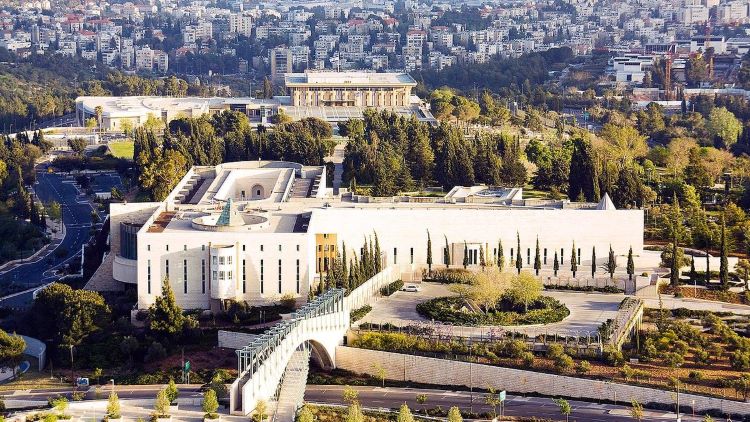Sonali Ray, writer
Brief news
The Middle East is on edge following the death of top Hamas leader Ismail Haniyeh in a strike in Tehran. Israel has declined to comment on the incident, but Iranian officials have accused Israel of an assassination. This comes just a day after Israeli forces claimed to have killed Hezbollah’s second-in-command, Fuad Shukr, in Beirut. Israel attributes the strike to Hezbollah, which denies involvement. Haniyeh’s death is a setback for Hamas and undermines the potential for a near-term ceasefire in the Gaza conflict. Iran, Hamas, and Hezbollah have expressed their intention to seek revenge, but the actions taken may lead to further escalation. While Iran may feel pressure to respond, analysts anticipate a conservative stance from the country, as they have shown minimal interest in engaging in a direct conflict with Israel over the Gaza conflict.
Detailed news
A strike in the Iranian capital of Tehran early Wednesday resulted in the death of top Hamas leader Ismail Haniyeh, and the Middle East is currently on edge as a result of this dramatic escalation.
Reuters reported that a representative for Israel’s government declined to comment on the demise of Haniyeh on Wednesday, despite Iranian officials’ accusations that Israel is responsible for an assassination.
Charles Lister, a senior fellow at the Middle East Institute in Washington, wrote in a post on X following the news that “Israel was very clear – Haniyeh was a dead man walking.” “After departing Doha, it was time to play.” The Middle East is currently at a precarious juncture, following the murder of Fuad Shukr in Beirut.
Just one day prior, Israeli forces declared that they had slain Fuad Shukr, Hezbollah’s second-in-command, in a strike on a densely-populated area of Beirut. This was in response to a strike on the Israeli-occupied Golan Heights that resulted in the deaths of several children last week. The assault is being attributed to the Iranian-backed Lebanese militant organization Hezbollah by Israel, an allegation that Hezbollah has consistently denied.
Haniyeh was the chief of Hamas’ politburo and was perceived as a more moderate figure within the organization. He was also the face of the group’s regional diplomatic endeavors and led cease-fire negotiations with Israel.
The alleged Israeli killing of Haniyeh is a significant setback for Hamas and effectively undermines any potential for a near-term ceasefire between the Palestinian militant group and Israel in the ruthless Gaza conflict, which is currently in its tenth month.
Sheikh Mohammed bin Abdulrahman Al Thani, the Qatari Minister of Foreign Affairs, wrote on X: “The ongoing negotiations in Gaza are plagued by political assassinations and the continued targeting of civilians. This begs the question: how can mediation be successful when one party assassinates the negotiator of the other side?” A global stance against the disregard for human life and sincere partners are necessary for peace.
Hamas’ political leadership has been sponsored by Qatar’s government for an extended period. In 2017, Haniyeh was appointed as the chief of Hamas’ political wing. Subsequently, in 2019, she relocated to Qatar as an exile. Yahya Sinwar, a Hamas devotee who was considerably more militant than him, succeeded him after his departure from Gaza. Sinwar is suspected of the masterminding the Oct. 7 attack on Israel, which resulted in the deaths of approximately 1,200 individuals and the abduction of an additional 253 hostages. 116 of the hostages have since been released.
According to the United Nations, Israel’s military response to the attack has resulted in the destruction of over half of Gaza’s buildings and the deaths of over 39,000 individuals, according to health authorities in the blockaded enclave.
Although ceasefire negotiations have been ongoing for months without success, the more extreme Sinwar, who is based inside Gaza and is reputed to have the final say on Hamas’ major decisions, frequently impedes or ceases communication during negotiations.
In an interview with CNBC, Victor Tricaud, a senior analyst at the consulting firm Control Risks, stated that Haniyeh was “a critical intermediary in the negotiations for a ceasefire in Gaza.”
“His death will disrupt the negotiations and result in Hamas’ leader in Gaza, Yahya Sinwar, facing less moderate opposition from within the organization,” Tricaud stated. “It is probable that a ceasefire agreement will remain unattainable for an additional few months.”
During a forum in Singapore, U.S. Secretary of State Antony Blinken reiterated the importance of an armistice agreement, saying that it is “the enduring imperative.” He also denied that the United States was aware of the purported Israeli attack on Haniyeh.
In 2018, the U.S. State Department designated Haniyeh as a terrorist, stating that he was “a proponent of armed struggle, including against civilians.” The department also declared that Hamas operations had been responsible for “an estimated 17 American lives killed in terrorist attacks.”
Is Iran likely to respond in kind?
Iran, Hamas, and Hezbollah have all expressed their intention to exact revenge; however, their actions toward Israel may result in further escalation or trigger a more extensive conflict.
On Wednesday, Israeli Defense Minister Yoav Gallant informed the Israel Defense Forces personnel that Israel is “preparing for all possibilities,” despite its reluctance to engage in a conflict. In contrast, Iran’s leadership has declared that the purported Israeli strike is justification for “severe punishment” and that the nation must “pay a heavy price.”
An all-out conflict between Iran and Israel, as well as Iran’s proxies like Hezbollah, would be catastrophic for all parties. However, Iran’s leaders may be compelled to respond in some way, as they will be under pressure to demonstrate their strength.
Torbjorn Soltvedt, principal MENA analyst at Verisk Maplecroft, stated to CNBC that the Revolutionary Guards’ strong pressure on Iran’s leadership to retaliate after another attack on Iranian soil is a result of Haniyeh’s demise in Tehran.
“Israel and Iran have already demonstrated their capacity to pose a significant threat to one another; however, the likelihood of another cycle of attacks is on the rise.”
Nevertheless, numerous regional analysts anticipate that Iran will adopt a conservative stance in response, as the Islamic Republic has demonstrated minimal interest in engaging in a conflict with Israel to support Hamas. In April, Iran and Israel engaged in tit-for-tat missile strikes that were essentially measured and telegraphed to prevent significant damage or casualties.
According to Tricaud of Control Risks, any retaliation is anticipated to be “extremely precise,” with a likelihood of utilizing proxy groups that are supported by Iran. “It is still uncertain whether Tehran’s intention to prevent a full-scale regional conflict with Israel has been altered as a consequence of Haniyeh’s death.”
Although the strike does represent a significant breach of the Islamic Republic’s sovereignty, he further stated, “Tehran has consistently demonstrated that it is not interested in engaging in a direct conflict with Israel regarding the Gaza conflict.”
Source : CNBC News



